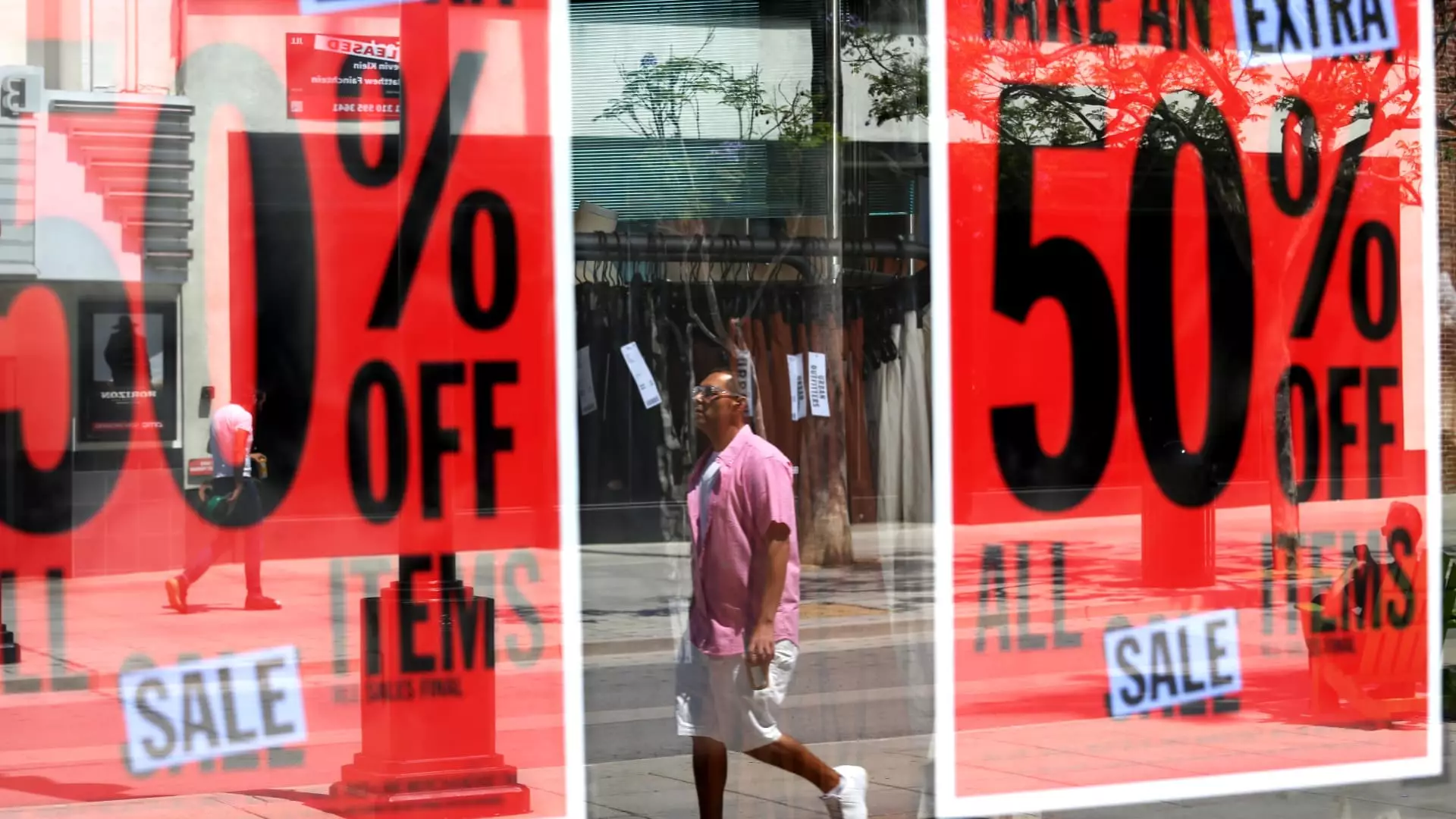The tumultuous landscape of U.S. consumer retail is currently under siege, and the instigator? None other than the ongoing trade war initiated by former President Donald Trump. This conflict, which began with high taxes on imported goods from countries like China, has provoked a sense of urgency among retailers scrambling to manage pricing and navigate supply chain turmoil. Both large corporations and small businesses are employing various strategies to deal with the impending ramifications of these tariffs. At the heart of this situation is an alarming trend causing retailers to exploit consumer fears, amplifying the urgency to buy now before prices inevitably surge.
A Climate of Consumer Fear
In what can only be described as an audacious marketing approach, many companies are capitalizing on the consumer panic sparked by the escalating trade war. Retail giants and emerging brands alike are crafting messages that address impending price hikes due to tariffs. Companies such as Beis, Bare Necessities, and Fashion Nova have all opted for marketing campaigns designed to alert shoppers that prices will rise unless they act fast. This form of strategic panic-peddling isn’t merely an act of opportunism; it is a survival mechanism in a landscape fraught with uncertainty.
Consider the lingerie retailer Bare Necessities, which recently launched a ‘pre-tariff sale’ boasting discounts of 30%. While the pitch that customers should “stock up before tariffs hit” might sound like savvy marketing, it raises ethical questions about leveraging fear for profit. This narrative of urgency plays directly into the psychology of consumers, turning routine purchases into urgent necessities. The retail establishment is effectively placing the onus on consumers to purchase now or face consequences later, manipulating the market dynamics to their favor.
The Reality of Uncertain Economics
The dubious nature of economic forecasting during a trade war cannot be overstated. With changes to tariffs being a reality, definitions of “normal” consumer behavior become muddled. Retail analysts like Sonia Lapinsky are raising alarms about impending drops in consumer spending, which could hit smaller retailers hardest. The data suggests that mid-sized companies and startups often lack the global supply chain flexibility enjoyed by entities like Walmart or Target. Without diverse supplier networks, these smaller businesses run the risk of being financially pummeled by tariffs that make their goods prohibitively expensive.
Despite the apprehension, a narrow silver lining for some sectors is that the trade war has motivated consumers to purchase high-ticket items in a race against time. Shoppers hearing of looming price increases are gravitating towards purchases that would typically warrant more contemplation. Thus, instead of an outright doom-and-gloom scenario, we see phenomena like spikes in sales, albeit accompanied by anxiety about future price stability. The chaotic backdrop might be setting the stage for short-term gains, but these hardly guarantee long-term survival for the brands involved.
The Divided Messages and Humor as a Buffer
Brands are also navigating an increasingly polarized political atmosphere. Companies like Beis have utilized humor in their messaging about tariffs, acknowledging their “financially traumatized” state while promoting the mantra of urgency without entering the political fray. “Our spreadsheets have spreadsheets,” they declare, touching upon absurdities in the face of fiscal uncertainty. Such messages serve as both a coping mechanism for brands and a method to engage consumers without alienating them along political lines.
This maneuver reflects a savvy recognition of marketing’s fundamental truth: consumers are not just purchasing products; they’re buying into narratives. By adopting a light-hearted tone in discussing something as serious as tariffs, brands aim to diffuse the politically charged air surrounding the matter. The trade war may have severe economic implications, but discussing it through humor can create a sense of community amid the chaos.
Ethical Implications and Potential Backlash
Yet, this approach is not without its drawbacks. While humor can soften the blow of tough news, there’s a noticeable risk that consumers can feel manipulated or even insulted. When the stakes are high and the economic future is uncertain, this type of marketing can backfire, leading consumers to question the intentions and sincerity of brands during a politically charged time. Many may wonder if companies are genuinely concerned about their welfare or simply looking to maximize profits through fear-based tactics.
In this light, it is crucial for brands navigating these complexities to understand their audience. Striking the balance between urgency and authenticity could prove to be the make-or-break factor for many retailers vying to maintain not just sales, but trust and loyalty from their consumer base. As the trade war continues to evolve, retailers must be proactive, flexible, and thoughtful about their messaging and strategies to avoid becoming collateral damage in a war they didn’t start.

